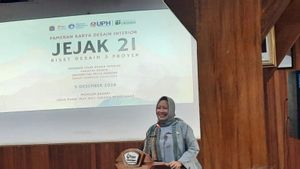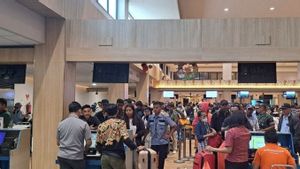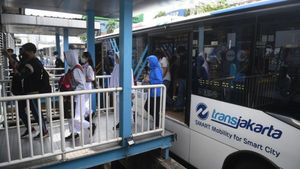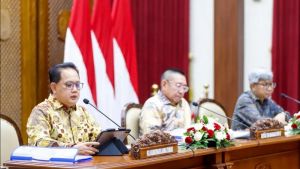The polemic surrounding Public Housing Savings (Tapera) encourages the Indonesian Employers' Association (APINDO) and the Confederation of All Indonesian Trade Unions (KSBSI) to voice the aspirations of workers and the Indonesian business world. Both parties agreed that the government reconsider and review the implementation of Tapera contributions.
Apindo Chairman, Shinta W. Kamdani said that the business world basically respects the government's goal of ensuring the welfare of workers. However, he said, as a savings, Tapera for workers should be applied voluntarily and not as an obligation.
"PP No.21/2024 signed by President Jokowi on May 20, 2024, we value it as a duplication of the existing program, namely the Benefits of Additional Service (MLT) for workers' housing that applies to participants of the BP Jamsostek Old Age Security (JHT) program. So we are of the view that Tapera can be applied voluntarily. Private workers are not required to participate, because private workers can take advantage of the MLT BP Jamsostek program," said Shinta, Friday, May 31.
For this reason, Shinta hopes that the government can further optimize BPJS Employment funds, where according to the PP, it is a maximum of 30 percent or Rp. 138 trillion. Shinta said that JHT's assets of 460 trillion are considered to be used for the housing MLT program for workers, considering the availability of very large MLT funds and are considered not to be maximally utilized.
Meanwhile, the President of KSBSI - Elly Rosita Silaban considers that the government can actually maximize the use of MLT BPJS Ketenagakerjaan funds intended for housing ownership programs for workers who do not have a place to live.
"For that, we ask the government to at least revise Article 7 from being a voluntary one," explained Elly.
According to him, the implementation of the Tapera Law does not guarantee that workers' wages have been cut since the age of 20 and until retirement, to be able to get a place to live.
BACA JUGA:
Not to mention the work relationship system that is still flexible (contract work), this is still far from the hope of being able to prosper workers.
"We consider the Tapera Law not an urgent law, so there is no need to be forced to apply at this time," added Elly.
In line with Apindo, Elly also suggested that the government not make saving participation in Tapera a form of obligation but on a voluntary basis.
The English, Chinese, Japanese, Arabic, and French versions are automatically generated by the AI. So there may still be inaccuracies in translating, please always see Indonesian as our main language. (system supported by DigitalSiber.id)













